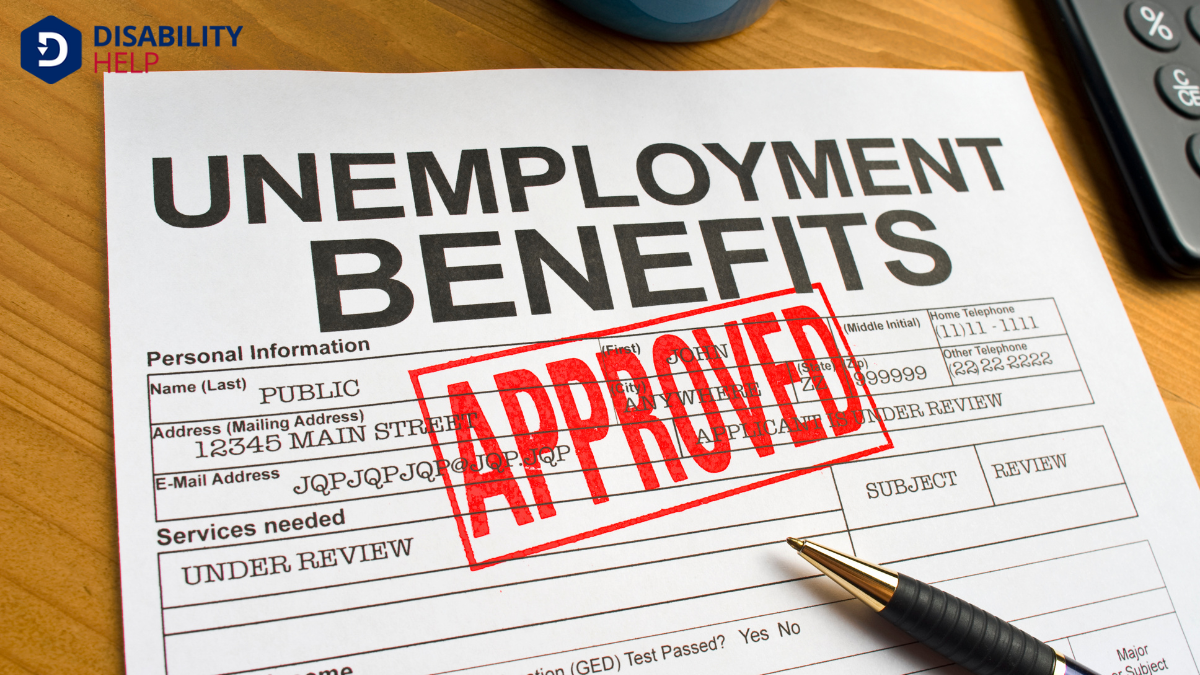I understand the uncertainty that comes with being fired, and you might be wondering about compensation. The truth is, it depends on various factors, like your employment contract and the reasons behind your termination. Severance pay and unemployment benefits could be options, but they're not guaranteed. It's important to explore these possibilities and know your rights. Curious about what steps to take next to secure financial support during this change?
Key Takeaways
- Eligibility for severance pay depends on the employment contract and company policy, as it's not legally required.
- Severance packages may include salary continuation, health benefits, or career counselingProfessional guidance provided to individuals with disabilities to help them explore career options ....
- Unemployment benefits eligibility varies by state and typically requires job loss without personal fault.
- Legal advice can help negotiate better severance terms and clarify eligibility for compensation.
- Non-compete and confidentiality clauses can impact future employment opportunities post-termination.
Understanding Severance Pay
When you lose your job, understanding severance pay becomes essential. It’s a financial bridge that can ease the shift into unemployment. Not all employers are obligated to offer it, but if they do, it could be a lump sum or periodic payments.
Knowing the terms of your severance package is vital. I’ve found that severance pay often includes salary continuation, health benefits, or even career counselingProfessional guidance to help individuals cope with emotional, mental, or social challenges, particu.... It’s important to review any agreements thoroughly and understand your rights and responsibilities.
Don’t hesitate to ask your HR department for clarification. They’re there to help. Also, consider consulting a legal expert if you’re unsure about the terms. Remember, this is your livelihood, and being informed helps you make the best decisions.
Exploring Unemployment Benefits

When I first explored unemployment benefits, I found understanding the eligibility criteria essential before applying.
I'll guide you through the application process steps, ensuring you know exactly what to do.
Additionally, I'll explain how the benefit amount is determined, so you're well-prepared for what's ahead.
Eligibility Criteria Explained
So, how do you know if you're eligible for unemployment benefits after being fired? First, consider the reason for your dismissal. Generally, if you were let go through no fault of your own—like company downsizing or a role being eliminated—you might qualify.
However, if you were fired for misconduct or violating company policies, eligibility could be compromised.
Another factor is your work history. You usually need to have worked a certain number of weeks or earned a specific amount in the base period preceding your claim.
Each state has its own rules, so it’s essential to check your local requirements. Also, make sure you're actively seeking new employment, as most states require ongoing job search efforts to maintain eligibility.
Application Process Steps
Understanding your eligibility sets the stage for the application process for unemployment benefits. First, you're going to want to gather necessary documents like your Social Security number, employment history, and reasons for unemployment.
With these in hand, start the application online through your state’s unemployment website. Most states prefer online submissions, guaranteeing efficiency and speed.
After submitting your application, you’ll receive confirmation and might need to complete a phone interview. During this call, I suggest being honest and clear about your employment situation.
Keep an eye on your email or mailbox for any follow-up instructions. Don’t delay; applying promptly guarantees you receive benefits without undue delay.
Stay proactive, checking in if you haven’t heard back in a reasonable time.
Benefit Amount Details
Steering through the world of unemployment benefits can feel overwhelming, but understanding how your benefit amount is determined is vital. When I started this journey, I discovered that the amount you receive largely depends on your previous earnings.
Most states calculate benefits based on a percentage of your income over a specific base period, usually the last four or five completed calendar quarters.
I had to gather my past pay stubs and employment records to guarantee accuracy. Each state has its own maximum and minimum weekly benefit amounts, so it’s important to check your state’s guidelines.
Don’t forget that deductions, like taxes or other obligations, can affect your final benefit. Understanding these details made a big difference in managing my expectations and planning my finances.
Evaluating Your Employment Contract
When it comes to evaluating your employment contract, attention to detail is essential. I remember the first time I'd to review mine, I felt overwhelmed.
However, breaking it down into key sections made it manageable. Look for clauses related to termination, severance pay, and any benefits you're entitled to upon being fired. These details could greatly impact your financial situation post-termination.
Don’t overlook any non-compete or confidentiality agreements, as they might affect your future employment opportunities.
It’s also wise to check for any provisions about dispute resolution, which might dictate how any disagreements are handled. Understanding these elements will empower you, ensuring you're not caught off guard.
If you're unsure about any part, consulting a legal professional can provide clarity.
Navigating the Termination Process
Though facing termination can be intimidating, knowing how to navigate the process can make a significant difference. I’ve been in your shoes, and I understand how overwhelming it can feel. Here’s a straightforward way to approach it:
- Review Your Termination Notice: Verify you understand the reasons for your termination. This helps in identifying any potential discrepancies or issues.
- Request a Meeting: Ask for a discussion with your employer or HR to clarify any uncertainties. This shows initiative and allows for direct communication.
- Secure Documentation: Gather any relevant paperwork, such as performance reviews or emails, to support your understanding of the situation. It’s essential for future reference.
Assessing Eligibility for Compensation

So, how do you know if you're eligible for compensation after being fired? First, check your employment contract or company policy. Some employers offer severance pay, but it's usually outlined in these documents.
If you're part of a union, your collective bargaining agreement might've specific provisions. Also, consider why you were terminated. Was it due to downsizing or without clear cause? Such scenarios might increase your chances of receiving compensation.
Additionally, look into whether your employer adhered to proper procedures. For example, did they provide the required notice period? If not, this could support your claim.
Keep in mind, eligibility often depends on local labor laws, so it's crucial to understand your rights in your specific region.
Seeking Legal Advice
Before taking any action, consider seeking legal advice to understand your rights and options after being fired. It’s essential to know where you stand legally and what steps you can take.
Here’s why consulting a legal expert can be beneficial:
- Clarity on Rights: An attorney can help you comprehend your employment contract and any potential violations by your employer.
- Identifying Compensation: Legal advice can uncover possible compensation or severance you might be entitled to receive.
- Guidance on Next Steps: A lawyer can outline the best course of action, whether it involves negotiation or filing a complaint.
I understand that traversing these waters can be overwhelming.
Getting professional insight can empower you to make informed decisions confidently.
Filing for Unemployment
After understanding your rights and potential compensation with legal advice, it's time to contemplate filing for unemployment benefits.
I know facing unemployment can feel overwhelming, but remember, you're not alone. Unemployment benefits can provide temporary financial support while you search for a new job.
To start, visit your state’s unemployment website. Each state has slightly different requirements, so it's important to review their guidelines carefully. Typically, you'll need to provide information about your previous employment and earnings.
Don’t delay filing; benefits often begin from the date you apply, not the date you were let go. Keep in mind, eligibility may depend on the circumstances of your termination. Be truthful and precise in your application to avoid any complications.
Negotiating a Better Severance Package

Why settle for the initial offer when you can negotiate a better severance package? It’s understandable to feel overwhelmed after being let go, but you’ve got the power to improve your terms. Here’s how:
- Do Your Research: Know what others in your position typically receive. This knowledge strengthens your case and helps you set realistic expectations.
- Highlight Your Contributions: Remind your employer of your achievements and how they’ve benefited the company. Acknowledge your value to justify better terms.
- Ask for More Than Money: Consider requesting extended health benefits, outplacement services, or a positive reference letter. These can be just as valuable, if not more.
Protecting Your Rights in the Workplace
When you're facing termination, understanding your employment contract is essential to protecting your rights.
I recommend reviewing the terms carefully, especially if there's a severance agreement involved.
Understanding Employment Contracts
Maneuvering employment contracts can seem intimidating, but understanding their terms is vital for protecting your rights in the workplace.
When I first encountered employment contracts, I realized how significant it was to know what I was agreeing to.
Here are three key elements to focus on:
- Job Duties and Expectations: Confirm the contract clearly outlines your responsibilities. This avoids misunderstandings about your role and helps you evaluate if the job aligns with your career goals.
- Compensation and Benefits: Verify that salary, bonuses, and benefits are specified. You'll want clarity on how and when you’re paid.
- Termination Clauses: Look for details on how termination is handled. This includes notice periods and grounds for dismissal, helping you understand your entitlements if things go south.
Understanding these contract aspects empowers you in your employment journey.
Navigating Severance Agreements
Understanding your employment contract is just the beginning; knowing how to handle severance agreements is equally important for securing your rights. When you're faced with a severance agreement, don’t rush to sign it.
I’ve learned that taking the time to carefully review every detail is essential. You have to understand what benefits you're entitled to, like continued health insuranceA system for paying for medical services, often covering preventive, diagnostic, and treatment costs... or outplacement services.
Check for any non-compete clauses that might restrict your future job prospects. It’s wise to consult with an employment lawyer who can help you fully grasp the terms and negotiate better conditions if needed.
Conclusion
Losing a job can be overwhelming, but it's vital to know your options. Check your employment contract and understand your rights—you might be entitled to severance or unemployment benefits. Don't hesitate to negotiate a better severance package, and consider seeking legal advice if needed. Remember, protecting your rights is fundamental. Filing for unemployment promptly can provide financial support during this change. Stay informed and proactive to guarantee you receive the compensation and support you deserve.






